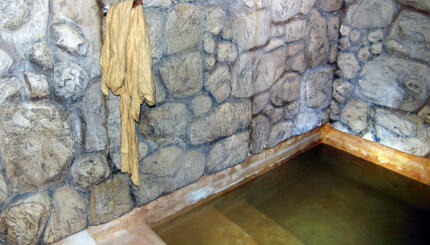Reprinted with permission from Maimonides’ Introduction to His Commentary on the Mishnah, translated and annotated by Fred Rosner, and published by Jason Aronson.
Following [Seder Nezikin (damages), Judah the Prince] subdivided the order dealing with Kodashim (Holy Things), and began with animal sacrifices, which constitute tracate Zevahim (sacrificial victims).
After Zevahim comes tractate Menahot (grain offerings), according to their sequence in the Torah (Leviticus 1 and 2, respectively). Having completed the topic of holy sacrifices and what pertains thereto, he speaks of other slaughterings [for ordinary meat consumption], also according to the sequence in Scripture. Thus, after it states, “But in the place which the Lord shall choose in one of thy tribes, there thou shalt offer thy burnt offerings, and there thou shalt do all that I command thee” (Deuteronomy 12:14), it then says, “Notwithstandng thou mayest kill and eat flesh after all the desire of thy soul” (12:15); therefore, he placed tractate Hullin after Menahot.
After Hullin comes tractate Bekhorot (first born animals), according to their sequence in Scripture, since after it states, “Notwithstanding, after all the desire of thy soul” (Deuteronomy 12:15), it asserts, “Thou mayest not eat within thy gates the tithe of thy corn, or of thy nine, or of thine oil or the firstlings of thy herd or of thy flock” (12:17). After completing the discourse on things whose bodies are holy, he speaks of money [such as vows of valuation], because these are also holy and he, therefore, placed tractate Arakhin (assessments for vows) after Bekhorot.
With your help, My Jewish Learning can provide endless opportunities for learning, connection and discovery.
After Arakhin is tractate Temurah (exchange of sacrifices), also according to their sequence in Scripture (Leviticus 27:1-8 and 27:9-10, respectively). Having terminated discussions of these topics, he then placed tractate Keritot (extirpation), within which are enumerated all the offences for which Karet (excision of the soul) is the penalty, and all that is related to that subject. The reason for classifying this topic in Seder Kodashim is that any offense for which the punishment is Karet when committed willfully, if committed unintentionally, the penalty is a sin offering, with few exceptions as will be explained there.
He placed tractate Me’ilah (trespass, embezzlement) after Keritot because the offenses for which one is obligated to bring a trespass offering are of a lesser severity than those for which a sin offering is required. Tractate Tamid (always, daily offering) is after Me’ilah and it is in last place because it does not contain any laws, nor does it concern anything that is forbidden or permitted. Rather, it is only a narrative describing how the daily offering was sacrificed, in order to make it possible to do so forever. After Tamid is tractate Middot, whose content is limited to narratives about the measurements of the Temple, its shape, and the manner of its construction. The benefit to be derived from this is that when the Temple will be rebuilt, one should preserve that shape and that arrangement because that arrangement comes from divine inspiration, as it is stated: “All this [do I give thee] in writing as the Lord hath made me wise by His hand upon me” (1 Chronicles 28:19).
After completing his discussions concerning animal sacrifices and all that pertains thereto, as well as the model of the Temple in which the aforementioned sacrifices are offered, he then juxtaposed to these tractate Kinnim. The entire subject matter of this tractate deals with laws of mixtures of birds, meaning if sacrificial bird offerings became mixed up one with another. This topic is considered last because it is not a necessary occurrence, since they may or may not become mixed up. In addition, all their laws are extremely few, as will be clarified in its place. With this tractate, he completed Seder Kodashim. Thus was completed the subdivision of Seder Kodashim into eleven tractates.
Torah
Pronunced: TORE-uh, Origin: Hebrew, the Five Books of Moses.


